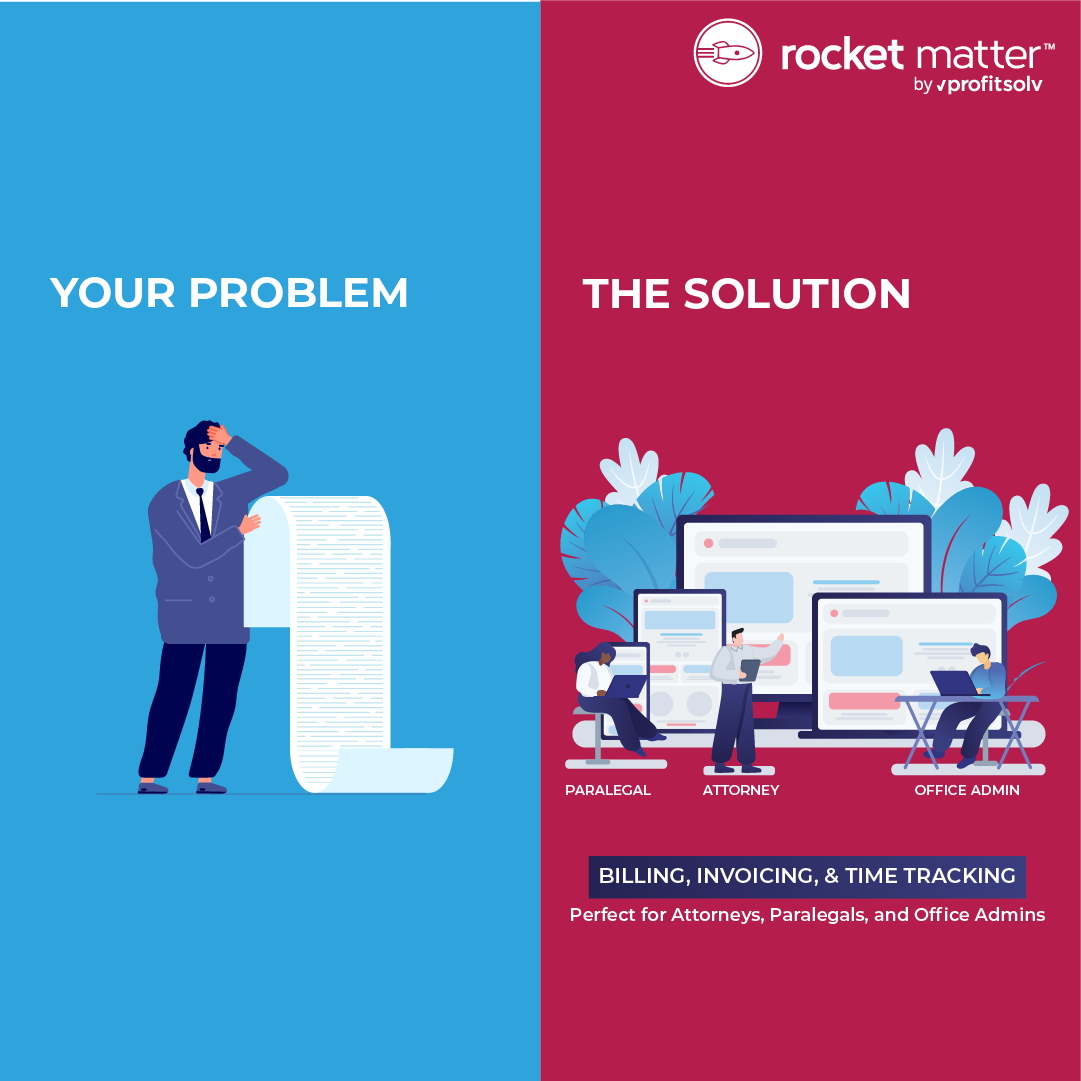Six Trust Accounting Challenges Faced by Solo and Small Firms

Imagine handling dozens of bank accounts that you move money in and out of on a daily basis while tracking every transaction down to the penny. It’s enough to make your head spin.
Of course, if you work in a law office, you likely do that already.
Proper legal trust accounting is critical to success in this industry, but it’s tricky for many law firms, especially those with limited time and staffing resources.
From compliance regulations and accurate record keeping to time-consuming administrative tasks that take legal professionals away from billable tasks, small law firms and solo practitioners face plenty of challenges when dealing with trust accounting.
Let’s look at six accounting challenges small law firms face and how they can rise above them, specifically by leveraging the right software solutions—with all the right features.
Challenge #1: Regulatory compliance
No matter the size of your law firm, you’re subject to the same ethical requirements and regulatory compliance standards when it comes to trust accounting.
Maintaining accurate records, reconciling bank accounts, and generating necessary reports are practices that smaller firms and solo practitioners might find particularly challenging due to the limited resources and personnel to handle all of these moving parts.
The solution
That’s where legal-specific software comes into play. Managing trust accounts manually can be a huge drain on your time and energy, but leveraging a solution designed to meet trust accounting requirements takes the burden off of your team. Look for a solution that delivers:
- Transaction tracking
- Integrated bank reconciliation
- Trust ledger management
- Reporting solutions
Challenge #2: Manual errors and mistakes
Because solo practitioners and smaller firms often rely on manual processes for trust accounting, they have an increased risk of errors and mistakes. Misplacing or misreporting client funds can lead to severe consequences ranging from reputational damage to fines, penalties, and legal disputes.
The solution
Automating aspects of your trust accounting can help your firm limit the likelihood of manual error. Automation allows you to track and manage client funds accurately, ensuring that every transaction is recorded appropriately.
A few ways to automate your trust accounting might include:
- Use invoice templates with built-in LEDES codes
- Automatic trust replenishments
- Automated reporting to support three-way reconciliation
Challenge #3: Limited time for administrative work
One of the biggest issues that smaller law firms face when it comes to any legal work (not just trust accounting) is time management. With a smaller team, you have limited hours to get all of your work done, which can lead to increased workloads that stifle productivity.
Free Guide
The Paperless Law Office: A 12-Month Plan
for Going Paperless
This free guide will provide you with an actionable plan for going paperless, with monthly tasks that include:
1. Determining your paperless processes
2. Establishing naming and filing conventions
3. Choosing an online storage provider
4. Embracing mobile paperless tools
5. And more important resources!
The solution
There are several useful strategies when it comes to ensuring everyone has time for administrative work. The first step is to set up accurate matter budgets. Matter budgets help you create a realistic picture of how much work goes into a legal matter, including handling non-billable projects like trust accounting.
To make sure each team member has enough time for tasks, you should also carefully monitor your utilization rates. Your utilization rates will highlight how much time each individual has for tasks, and where there may be discrepancies. For example, if one attorney has a high utilization rate, consider what resources might be allocated to help free them up to accomplish their non-billable tasks.
Challenge #4: Auditing and reporting
Keeping accurate and up-to-date trust accounting records is critical to passing audits and fulfilling reporting obligations. Unfortunately, compiling the necessary documents and reports can be a daunting task for solo practitioners and small law firms.
The solution
Automated reporting can be a major relief for law firms. Instead of setting up and running complex trust account reports every month, set your reports on auto-pilot so you can pull the information you need with a click of a button, such as:
- Detailed transaction histories
- Bank reconciliations
- Client-specific trust ledgers
Not only does automated reporting allow you to pull the necessary documentation with ease, but you can also rest assured that you’ll be meeting trust accounting compliance standards.
Challenge #5: Limited resources for clients with multiple matters
If you’re manually handling trust accounting for clients with multiple matters at your firm, it can be confusing and difficult to keep track of what funds need to go where and from which accounts.
The solution
To ensure you’re managing trust accounts correctly, set up multiple trust accounts for client matters. This allows you to clearly delineate work done on individual matters without risking cross-pollination of funds. Reporting and invoicing are much more manageable, too!
Challenge #6: Industry-agnostic software issues
When it comes to handling trust accounting and other essential processes that go with running a legal practice, many firms rely on an assortment of industry-agnostic software solutions to get the job done.
While you can squeak by with tools that weren’t designed to meet your needs, it’s better to find a solution that’s tailored to me the unique demands of trust accounting and legal work.
The solution
A great legal-specific software can handle trust accounting and more with features like:
- Accurate invoice generation with LEDES codes
- Automatic account replenishment requests when accounts fall below certain thresholds
- Cloud-based time-tracking solutions that allow you to keep up-to-the-minute records of time spent on client matters
- Task management solutions that ensure you never miss a deadline and everyone on your team knows what they need to be doing
- File-sharing and eSignature solutions that make it easy for you to collect signatures quickly and share documents with clients without delay
- Advanced reporting solutions that give you insight into the health of every process in your firm, allowing you to make data-driven decisions
- Project management solutions that streamline workflows to keep your team efficient and focused on important tasks
- Trust-compliant online payment options that make things convenient for your clients and allow you to get paid instantly instead of waiting days or weeks for a check to clear
- Integrations with tools your firm already uses so you don’t need to hop back and forth between software solutions to get the job done
Take the heavy lifting out of trust accounting
Trust accounting challenges can pose significant hurdles for solo practitioners and small law firms, but that doesn’t mean you can’t jump right over them with the right tools.
When you use Rocket Matter’s practice management software, your solo practice or small firm will gain access to robust tools that take the heavy lifting out of trust accounting by streamlining your processes and helping you to maintain regulatory compliance.
From automatic reconciliation and automated time and billing solutions to creating multiple trust accounts for one client, we’ve got you covered. If you’re ready to see what Rocket Matter can do for your firm, contact us today.
Related Resources

How to Increase Your Profits with Rocket Matter
Lawyers in firms of all sizes struggle to finish the work for the day in a reasonable amount of time. With document creation, non-billable tasks, and time spent following up with current and potential clients, the workday quickly turns from a planned eight-hour day into a twelve-hour one.

How to Master Your Law Firm’s Time and Billing
Lawyers have a heavy workload. With so many clients and their various needs, it’s easy to put tedious administrative tasks like time tracking and billing on the back burner.

6 Billing Strategies to Grow Your Law Firm
Scaling your law firm doesn’t just mean adding more lawyers or increasing your number of clients. The best way to boost your law firm’s finances is to minimize your non-billable hours and make sure that every hour of your day is accounted for.
Share post:










